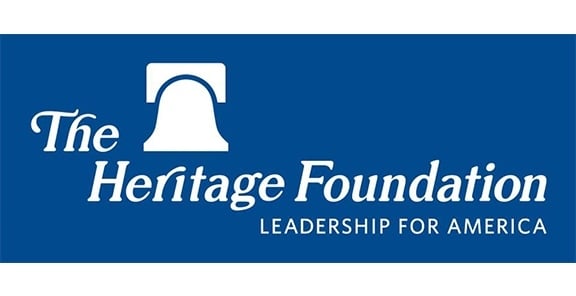Heritage Foundation’s Research Technology Fellow Kara Fredrick’s recent paper, “Combating Big Tech Totalitarianism A Road Map,” is an about face from where the think tank stood just two years ago—and a major departure from where the Hertiage Foundation has stood for decades regarding intervention into markets. This ideological turn places the Heritage Foundation with Trump era conservatives whose populist anger at private technology companies has lead them to support using antitrust and other government regulation to crack down on “Big Tech.” Consequently, Fredrick urges the federal government to prohibit private technology companies from conducting business privately—and instead forces them to run business decisions through a maze of new regulations that will inhibit growth, decrease investment, and hurt small businesses as well as the next generation of entrepreneurs.
One example is Frederick’s endorsement of a new regulation that would prohibit companies “from preferencing their own products or combining the “buy-side” of the market with the “sell-side…” Fredrick’s “preferencing” proposal resembles a provision in Senator Amy Klobuchar’s “merican Innovation and Choice Online Act (S. 2992). If the senator’s legislation passes, the bill will prohibit Amazon from limiting the use of the Prime designation to those retailers who agree to use Amazon’s shipment services. This would make it impossible for Amazon to guarantee one- or two-day delivery for products bought from a third-party vendor. The inability to guarantee one-or-two-day delivery would cause Amazon to restrict Prime to its’ own products or cause many consumers to avoid using third-party vendors. Either way, small business would end up losing opportunities to use Prime to reach new customers.
Whilst S. 2992 only applies to businesses with a market capitalization above $550,000,000. Fredrick would expand upon that idea and also prohibit all “…platforms that leverage their market dominance to shape the public square.” This vague standard could apply to any web site that provides a platform for political discussion—including the growing number of sites designed specifically for conservatives.” Since the 1980s, antitrust enforcement has been guided by the consumer welfare standard. This standard says that government should not use antitrust against a company unless its’ actions can be shown to harm consumers. Frederick pays lip service to this standard—even suggesting it be codified—but her version of Klobuchar’s S. 2992 would give federal bureaucrats even more arbitrary power over all internet businesses-regardless of how they benefit consumers. This strikes at the heart of the consumer welfare standard.
In the middle of her misguided policy proposals, Fredrick does raise some at least interesting concerns regarding the collusion between Big Tech and Big Government. Because when President Biden and other government officials “encourage” private tech companies to “voluntarily” silence those whose opinions government deems as “misinformation,” they are violating the spirit, if not the letter, of the First Amendment. However, the reason Big Tech companies are responsive to pressure from politicians is because the federal government exercises great power over private companies. If the federal government’s powers were still limited to those few granted it in the Constitution, private companies could ignore the “suggestions” of any government official, including the president.
It should be clear that giving politicians and bureaucrats more power over private business practices, such as those contained in S. 2992, let alone allow these laws to be enforced against any technology company that “attempts to influence the public square,” would increase government’s ability to “influence” these companies.
But, if you are changing principles—as Heritage appears to be doing—maybe nothing is clear.
Conservatives that are tempted to support bills like S. 2992 should ask themselves if the bureaucrats at the Justice Department and Federal Trade Commission would use their new powers given them by S. 2992 would ensure free and open debate? Would these changes increase or decrease competition? Or would the government crackdown on those sites that allow and even encourage their users to express views and share news contradicting or opposing the policies of whoever hold political power at that moment? And, would these proposed policies increase or decrease the ability of small companies to sell their goods or entrepreneurs to find funding for their new businesses? At best, Fredrick’s proposals would mean conservatives could only get a fair shake from Big Tech when a fellow conservative sits in the Oval Office. At worst, her proposals would stop competion, hamper investment, and allow federal officials to bully “non-woke” tech companies and silence those arguing for free-markets, individual liberty, and constitutional government.
It is sad to see an important think tank like the Heritage Foundation support a big government instead of competition. But, it is even more troubling that their policy proposals seem void of thought and political foresight. Instead of calling for greater government control, those concerned with private company’s use of their market power to promote a left-wing political agenda, conservatives like Fredrick should embrace their free-market heritage by working to seperate technology and state.































